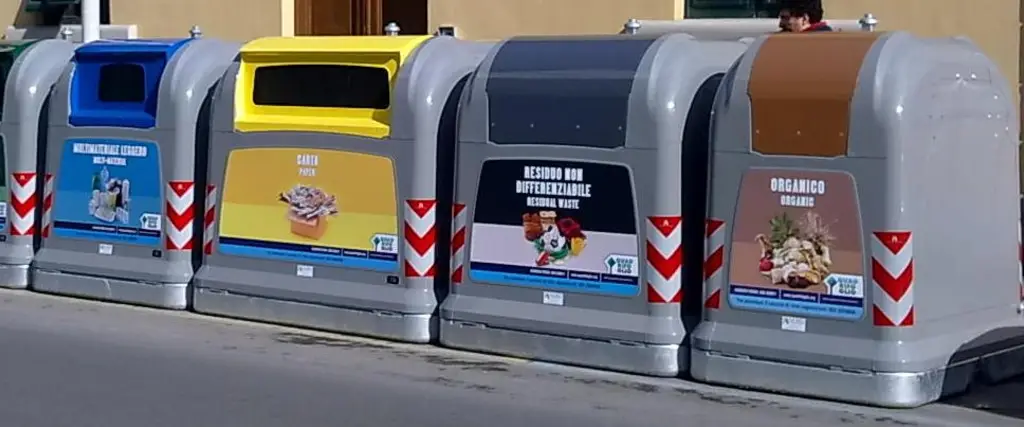
Separate waste collection
Respect for the environment also passes through simple daily practices, by citizens and tourists alike, such as separate waste collection. The sum of small gestures can really change the world!
Even for a conscious and sustainable holiday, it is important to know how to dispose of waste and how separate waste collection works in our destination. Let us also remember that non-compliance with the rules (such as abandoning waste) can result in fines of up to € 500.
To respect the environment and help keep the beauty of Florence and its territory intact, just follow a few simple rules summarised in this leaflet in 5 languages. For any doubts, please contact the owner of the accommodation facility where you are staying.
In Florence there are five types of waste that must be sorted and disposed of in the special bins, which have different colours: brown for organic waste; yellow for paper and cardboard; blue for plastic-metal-polystyrene-tetrapak packaging and containers; green for glass; and grey for other residues that cannot be sorted. Remember that street bins can be used only for small waste and not for waste produced within the accommodation facility. To better understand how to sort (what goes where) this guide can be very useful.
In addition, we strongly recommend downloading thefree Aliapp app, which also allows you to identify the type of waste - also by means of the bar-code reader- to know where to dispose of it, indicating the nearest stations or the collection methods according to your location.
It is indeed essential to be informed because the collection methods can change from municipality to municipality in the metropolitan area, but also from area to area in our city; in the historic centre, for example, you will mainly find underground bins - and door-to-door collection of paper and cardboard boxes - while in other areas of the city there are surface small bins (with or without a key). Tourists can open the bigger bins with a contact-less key (ask your host), or by downloading the Aliapp App via a blue-tooth connection. In the more peripheral-hilly areas, on the other hand, door-to-door collection of the various types of waste prevails, excluding glass (to be disposed of in the appropriate bins), according to a predefined calendar. Consult this link for all details and to stay up-to-date."